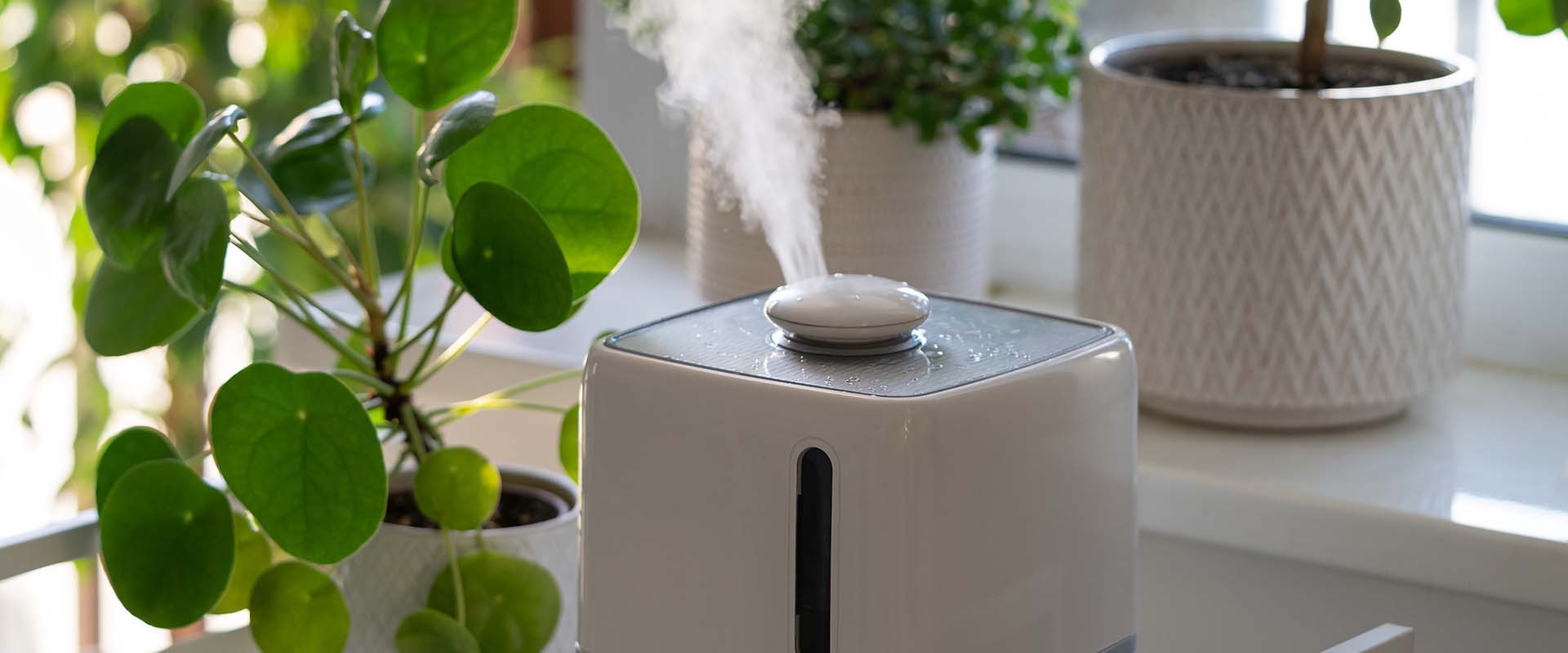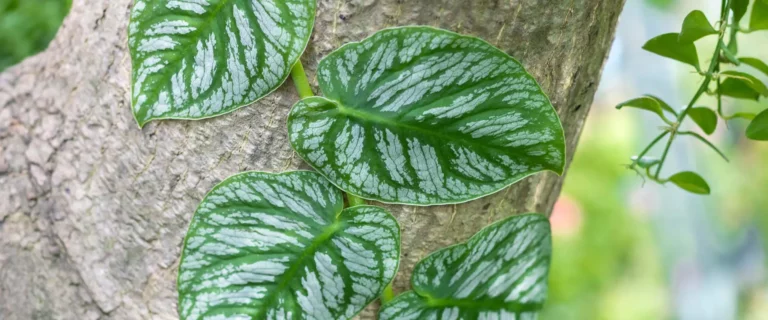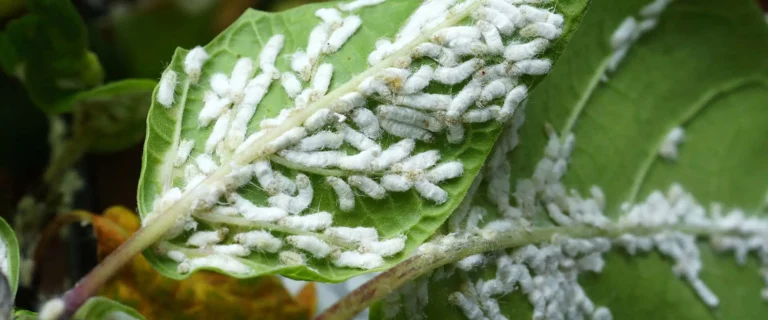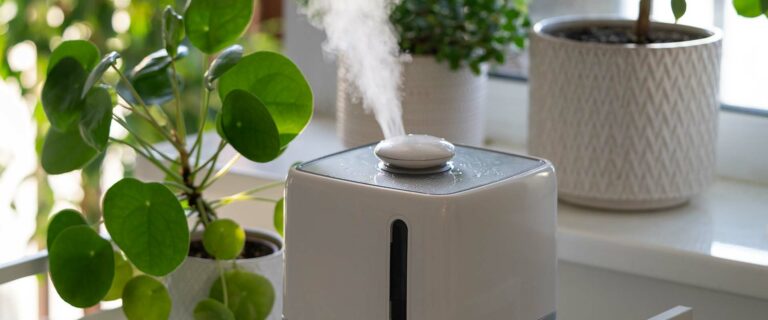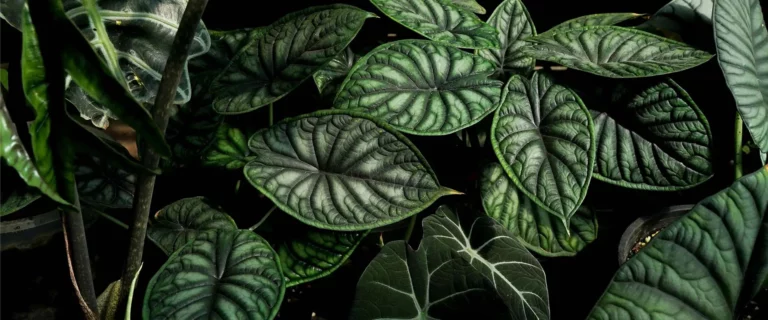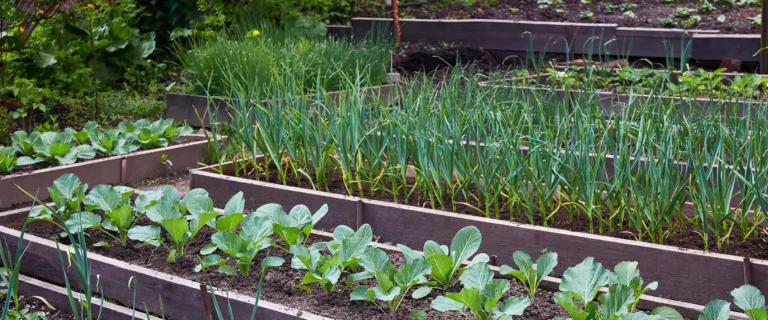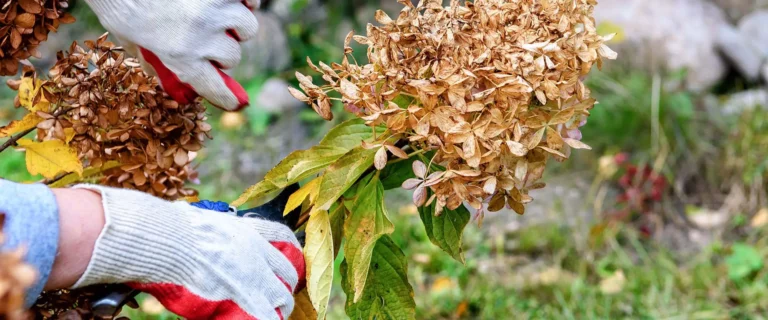During colder months, your houseplants have to live inside and hibernate for the winter just like the rest of us. Joy, our houseplant guru here at The Gardener’s Center, tells us what to watch for and how to care for our plants during this time.
First Concern: Humidity
Let’s talk about humidity levels. Joy shares that during the winter, her skin is dry, her lips are super chapped, and she’s itchy and dry, just like many of us are. Your houseplants at home are also feeling the effects of the dryness.
Most of them are tropical and living inside the house is not their natural habitat. We have the heat on, the humidity has dropped and they’re missing that tropical, jungley, misty humidity.
There are a few ways you can handle that.
First, you can give them a very light misting. You want to keep it light, because if you go too heavy, you could cause a little fungal or mildew issue. Get a sprayer that puts out a very fine mist. You don’t want to do this every day; try it weekly so they can get the moisture they’re missing.
Now, if you already have a humidifier in the house, you’re a step ahead. That’s because your humidifier doesn’t just humidify the air in the house for you, but also for your plants.
Another idea is that if you have just a few plants, you can skip these first two options and simply bring the “kids” in with you when you shower. That’s going to provide a nice humid steam for them.
Second Concern: Light
We all know the light changes in the winter. The sun is lower in the sky and isn’t as intense, which is okay; your houseplants will acclimate to the change.
But be sure that when the light changes, your watering habits also change.
Your plants simply won’t be drinking as much water because they’re not getting as much light.
Also, they’re not growing as they’re going through a slower, dormant phase. (Who likes it when it gets dark at 5 o’clock? Not us!)
Third Concern: Water
Light changes lead to watering changes. But that doesn’t mean all plants’ needs will be the same.
Some plants will drink less water because they’re slowing their growth and not absorbing as much moisture from the soil, through the roots and into the plant.
On the other hand… The heat is on in the house. It’s dry in the house. And some plants’ soil could dry out faster. But what if you’re not sure?
Take your Massangeana canes or Dracaena corn plants… They don’t drink a lot of water anyway and can live in low light. So while the soil may look dry on the top, two or three inches of soil down, there’s still moisture.
You can do the “finger test,” Joy’s number-one choice because you’ll be able to feel what’s down there. Just stick your finger down into the soil and if you feel moisture, don’t water your plant!
Other options are water meters, which are great tools. Like a meat thermometer, you just stick the meter into the soil and it’ll tell you whether it’s wet, whether it’s dry, or whether it’s somewhere in between.
Be mindful of other reasons that soil may be drying out faster… Your plants might be near a heating vent—which we try not to do—or it’s just exceptionally dry in the house.
Get to know your plants and their needs, especially as their environment has changed for the season causing their needs to change.
Fourth Concern: Spider Mites
The last thing to watch for? Ugh, spider mites. They love it dry with low humidity and hot, so this is their time.
Joy says December-ish, and definitely January and February, keep your eyes out for these “mighty mites.” Watch for webbing that usually collects at the base of leaves, or if your leaves are yellowing in a stippling pattern that goes “all the way through.” This is a different yellowing than the yellowing you see from over- or underwatering.
What to do? Regular misting will help; remember, those mites like it dry and they cannot build their webs in moisture.
If you think you have a bad case, put your plants in the shower, or if they’re small enough, put them in the sink. Give them a good soaking with the spray nozzle.
The other option is to use insecticidal soaps such as Safer’s End All. Horticultural or neem oil also works well, and we like Bonide’s All Seasons or Rose Rx spray oil. They all take care of spider mites.
So outside when it’s cold… Dry… Gloomy… Cloudy… Keep your houseplants happy and healthy with proper winter care.

